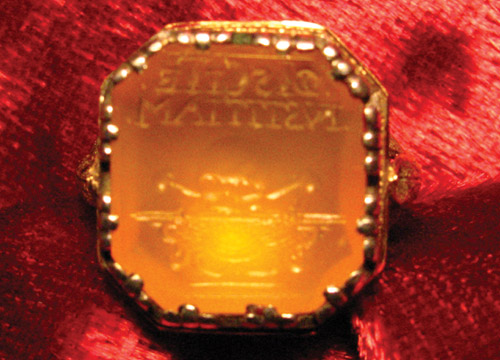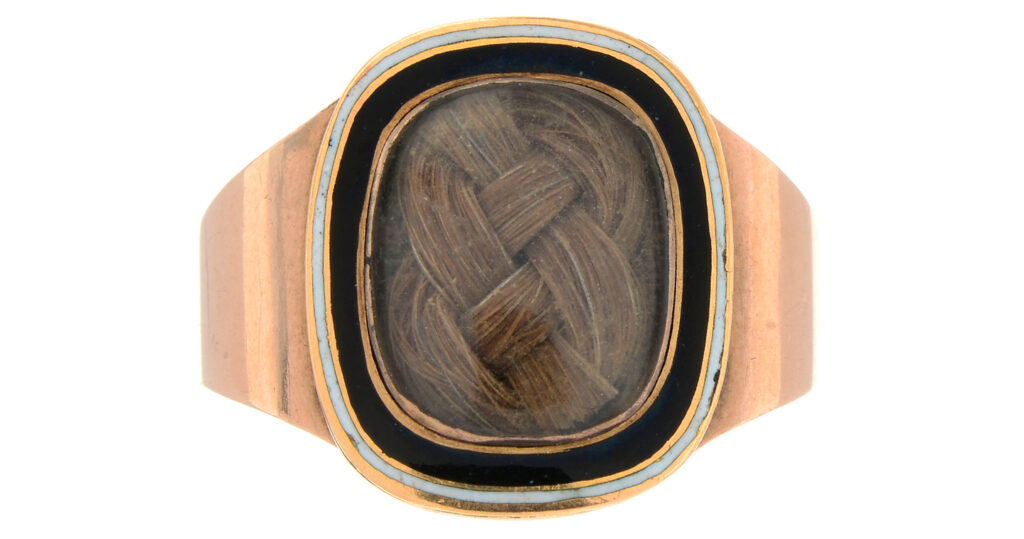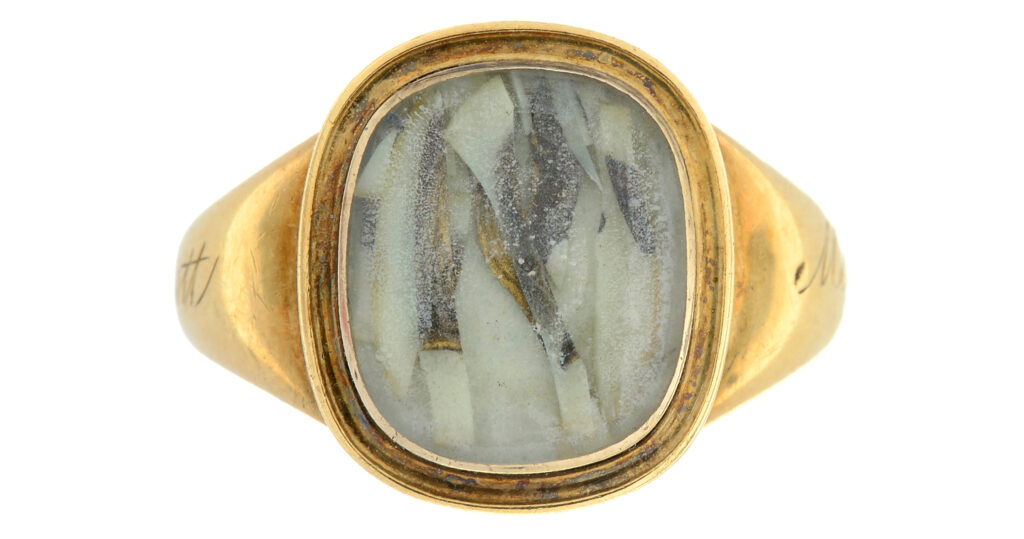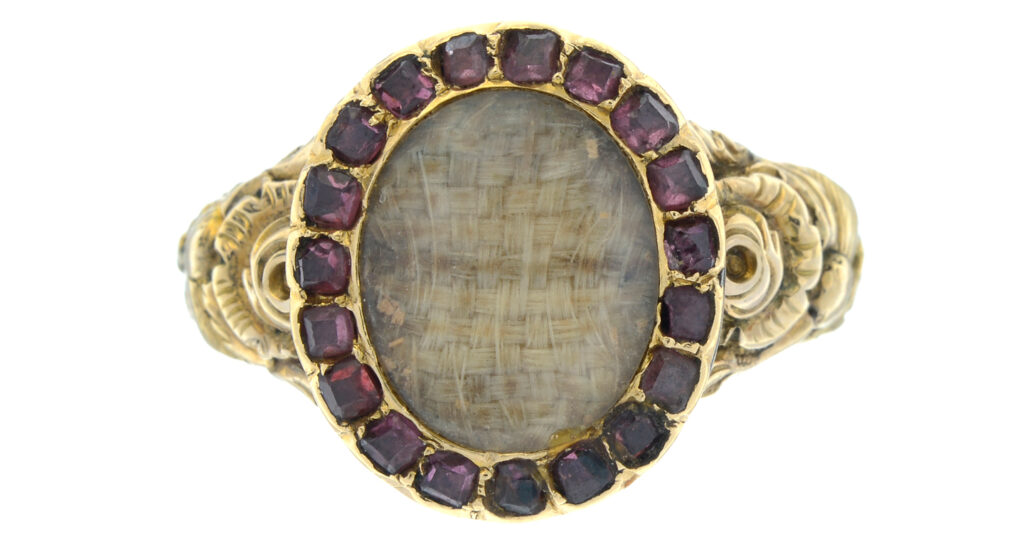Louis XIV Memento Mori Intaglio Ring
This ring is a fine example of French memento mori jewellery and is a wonderful contrast to the English style of the time.The stone is a carnelian with intaglio and the exceptional gold work (notably the styling to the base) is typical of its time. The inscription reads ‘Discite Invitatium’.
Rings of the time, particularly after the death of Charles I in 1649, used many of the aforementioned symbolism, but the difference of putting the portrait of Charles I, or pieces with the initials CR, shows a distinct change of memento mori as a statement to one of reverence.
The distribution of rings had been written into wills of the late 16th and early 17th Centuries. Most famously, William Shakespeare in 1616 declared that in his will that his daughter and wife should have rings stating “Love My Memory” . This custom, though used, was not as popular as the latter half of the 17th Century would prove, though it provides a good basis for what was to come. Posy rings, typically bands with inscriptions, were popular for sentimental purposes during the 17th Century.
In this particular ring, one must look at the symbolism of the skull on the plinth, its design and the country it was made in. Only then can we separate it from the concept of ‘mourning’ that the Memento Mori symbolism often appropriates in the mainstream mind.
This ring was created in France, a culture that differed from the standardised English interpretations of Memento Mori, mostly due to the confluence of religion, from the Protestant to Catholic, as France does not have the isolation of the British Isles. Much more cultural influx from surrounding European countries and the wide variety of fashion caused a wider variety in styles of mourning, leading to a lesser standard of linear mourning evolution. Design reflects the eventual look of a piece, but the intent (such as it being court ordained to wear a specific colour at a certain stage of mourning) is more malleable. Simply put, the nature of mourning as a personal event, rather than one ordained by a court or religion wasn’t as simple to control over a broad culture, whereas the English could enforce specific styles.
So, we have a ring with Memento Mori symbolism at a time when the symbolism wasn’t as defined as the culture that we recognise as cementing its ideals today. We have a culture that was looked to as the centre of fashion and hadn’t just suffered a civil war, a culture that defined itself.
It isn’t a stretch to consider that this ring was made for the intellectual purposes of Memento Mori, rather than the concept of death. Rather, it is a piece which reflects knowledge and mortality. The importance of these are the fundamental concept of living life to its utmost, as one day you will die.
Beyond this, the ring is an intaglio and has the rosette shape under the bezel. A pronounced ring that could be used to reverse out as a seal, a personal statement of living. Add to this the fleur-de-lis and we have a proud statement of French fashion and individuality.
Read on for more about concurrent styles that grew alongside this ring.
Country: France
Year: c. 1680-1700
Dedication: Discite Invitatium
Further Reading
> How Society Entered Mourning: c.1680-1700 Memento Mori Mourning Ring
> c1770 Garnet Paste Ring








